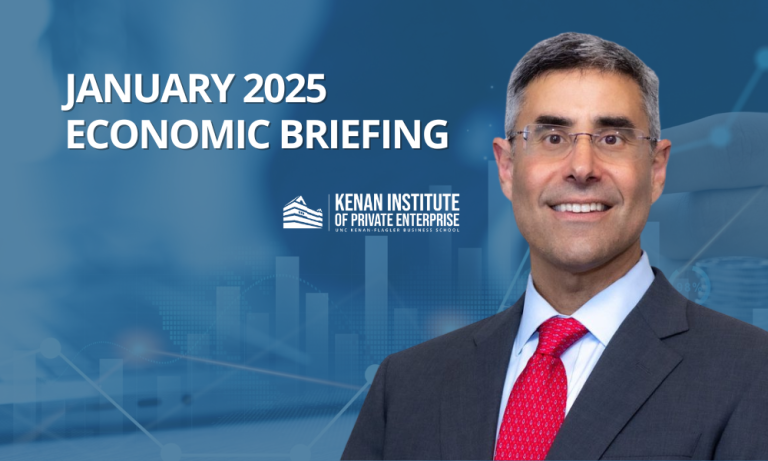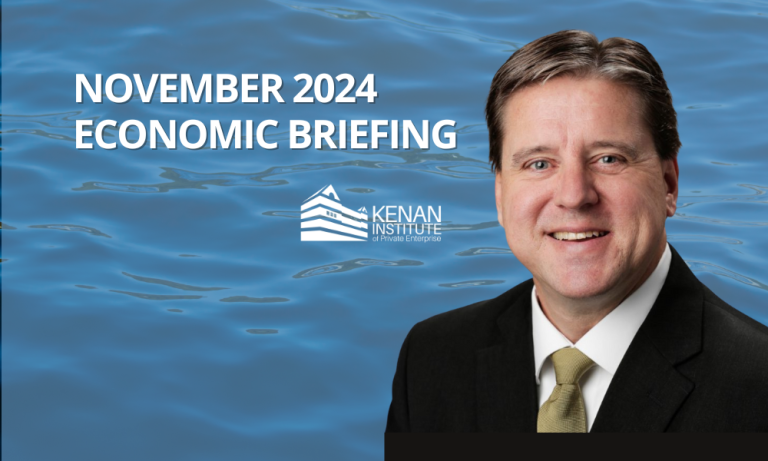
Join our monthly economic briefings as Kenan Institute experts analyze the latest employment report from the Bureau of Labor Statistics and discuss top-of-mind business topics.
Join us on Thursday, July 3, as Research Economist Sarah Dickerson explores the economic impacts of current U.S. policy during our monthly briefing.

Not-So-Great Expectations: May Economic Briefing
We can't call it a recession yet but join Kenan Institute Research Economist Sarah Dickerson as she addresses a mixed bag of economic news during the institute’s monthly briefing at 9 AM EDT Friday, May 2.
Kenan Institute Research Director Camelia Kuhnen will explore consumer confidence and sentiment, federal policy uncertainty, and economic activity during the institute’s monthly virtual briefing at 9 AM EDT Friday, April 4.
Join us for the institute's monthly virtual briefing this Friday, March 7, as Chief Economist Gerald Cohen evaluates new numbers, fresh tariffs and the continuing effects of policy uncertainty on the economy.
Will uncertainty over new administration policy dent the economy? Kenan Institute Research Fellow Greg Brown will look at this question and more during the institute’s monthly virtual briefing at 9 AM EST Friday, February 7.

Trends to Watch for 2025
In the institute's January 10 briefing, Chief Economist Gerald Cohen discussed the morning's employment report and shared his thoughts on some top-of-mind issues for business executives and policymakers this year.

Trends to Watch in 2025: January Economic Briefing
Dive into the Kenan Institute’s monthly virtual press briefing on Friday, Jan. 10, as institute Chief Economist Gerald Cohen explores economic trends to watch for 2025.

Season of Good Cheer? December Economic Briefing
Kenan Institute Research Director Camelia Kuhnen will discuss consumer confidence along with recent changes in the labor market and inflation during the institute’s monthly virtual briefing at 9 AM EST Friday, December 6.

Muddying the Waters
For our November 1 economic briefing, Kenan Institute Research Fellow Greg Brown discussed the morning's employment report and the effects that two hurricanes and a major strike had on some of the numbers it contained.

Muddying the Waters: November Economic Briefing
How will the hurricanes affect economic data for October? Kenan Institute Research Fellow Greg Brown will look at the data during the institute’s monthly virtual briefing at 9 AM EDT Friday, November 1.




Five Economic Trends to Watch in 2025
Kenan Institute Chief Economist Gerald Cohen kicks off 2025 with a rundown of five issues that will be top of mind for business leaders and policymakers, accompanied by his analysis.